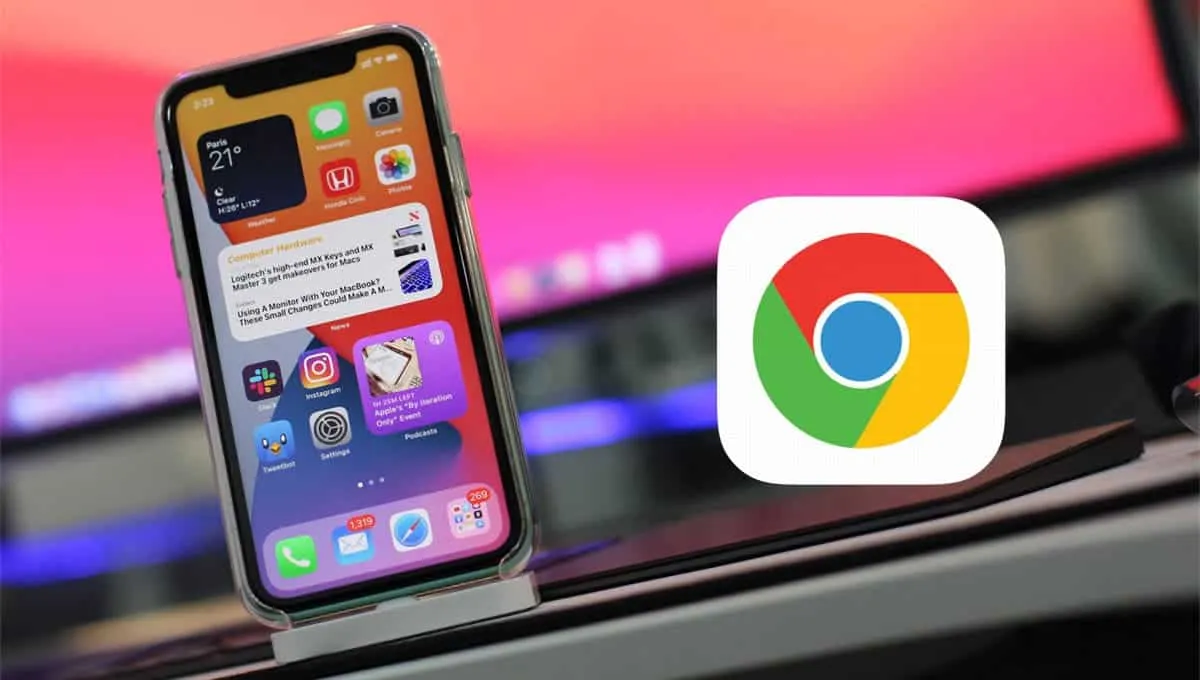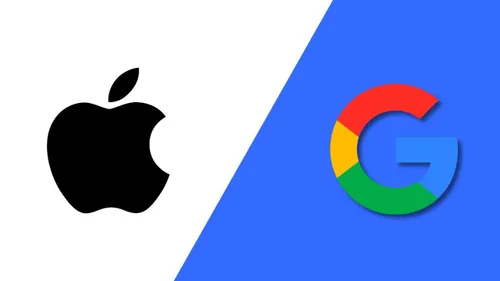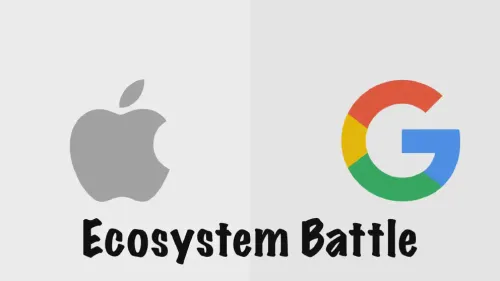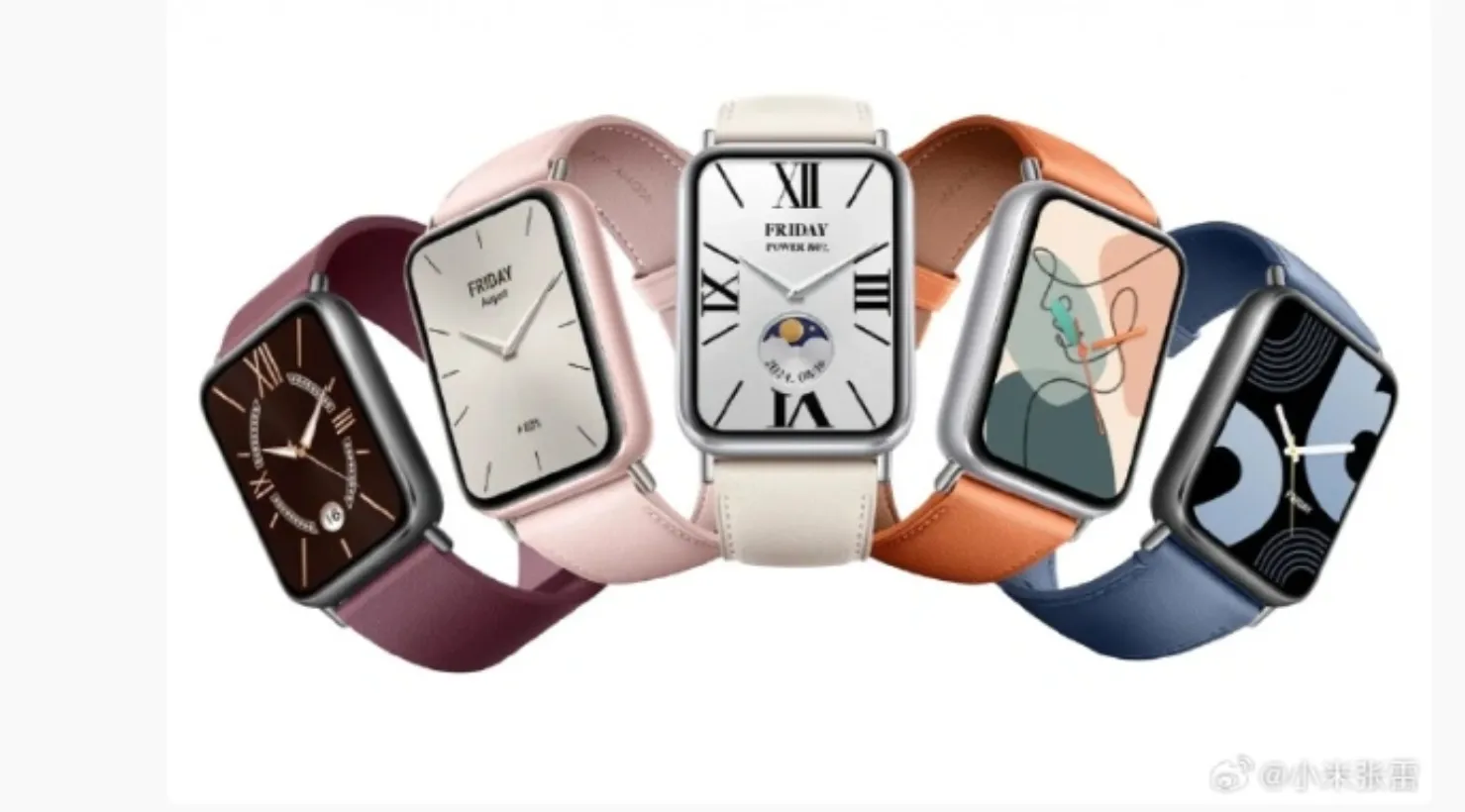
There is no denying that relationship between Apple and Google has always been complex. Lately, it's becoming even more so with Apple's latest attack ad targeting Google Chrome. This ad is a direct message to Apple's 1.4 billion users, urging them to stop using Chrome on their iPhones.
Why is Apple Urging iPhone Users to Ditch Google Chrome?

Google is on a mission to convert Safari users to Chrome. Currently, Google relies on Safari to drive most search requests from iPhones. This is due to a financial arrangement with Apple, where Google Search is the default on Safari. However, this arrangement is under threat due to monopoly investigations in the US and Europe. As a result, Google is advancing its "Plan B" to increase Chrome's install base on iPhones from 30% to 50%. With this, Google is aiming to bring another 300 million iPhone users into its ecosystem.
This push by Google to capture a larger share of iPhone users is a strategic move to safeguard its revenue and user data collection practices. With regulatory scrutiny intensifying, Google anticipates potential disruptions to its existing agreements. The search engine giant is proactively seeking to mitigate these risks by bolstering Chrome's presence on iOS devices.
The Privacy Battle Between Safari and Chrome
Apple's ad campaign underscores the privacy issues associated with Chrome. Privacy has always been Chrome's Achilles heel, with tracking cookies and a quasi-privacy mode that isn't as secure as users might think. Recently, it was revealed that Google captures device data from Chrome users through a hidden setting that users cannot disable.
In contrast, Apple positions Safari as the more secure option, emphasizing its commitment to user privacy. Apple's new video ad, inspired by Hitchcock’s “The Birds,” dramatizes the threat of being watched online. It reinforces the message: if you don’t want to be tracked, use Safari, not Google Chrome.
The Broader Implications on the End User
Apple's campaign includes privacy-focused billboards and a "Private Browsing 2.0" update. This highlights Safari's enhanced security and privacy features. This update aims to set a new industry standard for private browsing. It aims to challenge Google's Privacy Sandbox and its Topics API, which aims to replace tracking cookies with anonymous user cohorts for targeted advertising.
Apple criticizes the Topics API. It argues that advanced AI and machine learning can still deduce personal information from aggregated data. This ongoing debate over privacy standards and user data control is central to the battle between Safari and Chrome.
The implications of this battle extend beyond just browser choice. The fight over user privacy and data security reflects broader trends in the tech industry. An industry where companies are increasingly being held accountable for how they handle user information. Regulatory bodies in the US and Europe are scrutinizing tech giants more closely, and the outcomes of these investigations could have significant repercussions for how data is collected, stored, and used.
Market Dynamics

Despite Apple’s efforts, the reality is that many users prefer Google Search, even on iPhones. Apple's push to keep users within its ecosystem faces challenges, especially if users can manually set Google as their default search engine on Safari. Google may also offer advanced AI search features exclusive to Chrome. This move could add another layer to this competitive landscape.
Consumer preferences and behavior also have the capacity to influence the market dynamics. Apple surely emphasizes privacy and security of its users. On the other hand, many users prioritize convenience and familiarity. Google Search's dominance is partly due to its robust performance and extensive features. Such features have made it the go-to search engine for millions of users. Apple’s challenge is to convince users that the privacy benefits of using Safari outweigh the perceived advantages of Google Search.
Apple vs Google: The Historical Context
The rivalry between Apple and Google has a long history. Initially, the two companies collaborated closely, with Google providing key services for Apple's iPhone. However, as both companies expanded into new markets, their interests began to clash. The introduction of Android by Google marked a significant turning point, as it positioned Google as a direct competitor to Apple in the mobile operating system market.
Over the years, the competition has intensified. Both companies are seeking to outdo each other in terms of innovation, market share, and user experience. This competition has spurred significant advancements in technology, benefiting consumers with better products and services. However, it has also led to increasing tensions, as seen in the current battle over browser dominance and user privacy.
The Role of AI and Future Technologies

Looking ahead, the role of AI and other emerging technologies will be crucial in shaping the future of the Apple-Google rivalry. Both companies are heavily investing in AI to enhance their products and services. For Google, AI is central to its search capabilities. It also underscores its efforts to improve user experience through personalized recommendations and advanced analytics.
Apple, on the other hand, is leveraging AI to enhance privacy and security. Its emphasis on on-device processing and minimizing data collection aligns with its broader strategy of positioning itself as the champion of user privacy. The introduction of features like "Private Browsing 2.0" is part of this strategy. It proves how Apple aims to offer users a more secure and private browsing experience.
The Impact on Consumers
For consumers, the ongoing battle between Apple and Google has both positive and negative implications. On the positive side, the competition drives innovation, leading to better products and services. Consumers benefit from improved browser features, enhanced security measures, and a broader range of choices.
However, the battle also creates challenges. Users may feel caught in the middle. The difficult decision making in having to choose between convenience and privacy. The aggressive marketing campaigns and conflicting messages from both companies can lead to confusion and uncertainty. Additionally, the focus on capturing market share may result in less attention to interoperability and seamless integration across different platforms and services.
The Regulatory Environment
The regulatory environment plays a significant role in shaping the strategies of Apple and Google. Both companies are under increasing scrutiny from regulators in the US, Europe, and other regions. Issues such as data privacy, antitrust concerns, and the use of market power are at the forefront of regulatory investigations.
For Google, the scrutiny over its data collection practices and the potential impact of monopoly investigations are key challenges. The company's reliance on tracking cookies and other data collection methods has drawn criticism and regulatory action. The introduction of the Topics API is part of its efforts to address these concerns. However, it faces significant hurdles in gaining acceptance and demonstrating its effectiveness in protecting user privacy.
Apple, meanwhile, is positioning itself as the privacy-focused alternative. The iPhone maker also faces regulatory challenges. The company’s dominance in the app store market and its control over the iOS ecosystem have raised antitrust concerns. Apple’s ability to maintain its privacy-centric approach while navigating these regulatory challenges will be crucial to its long-term strategy.
Conclusion
The browser battle between Apple and Google is intensifying. It's gradually having significant implications for both companies and consumers. Apple’s privacy-focused ad campaign is a bold move to undermine Google Chrome and retain its user base. Both companies continue to innovate and respond to regulatory pressures. However, this rivalry will shape the future of mobile browsing and user privacy standards.
Apple’s strategy to emphasize privacy and security may resonate with users concerned about their online safety. The long-term outcome however will depend on how both companies adapt to changing technologies and regulatory landscapes. The battle for browser dominance is far from over, and the stakes are higher than ever.
As the competition unfolds, consumers will need to navigate the trade-offs between convenience, functionality, and privacy. The decisions made by Apple and Google in this arena will have lasting impacts on the digital landscape. It will influence how we browse the internet and protect our data. It will also affect how we interact with technology in our daily lives. The next few years will be critical in determining the balance of power between these tech giants and the future direction of the industry.
Popular News
Latest News
Loading






